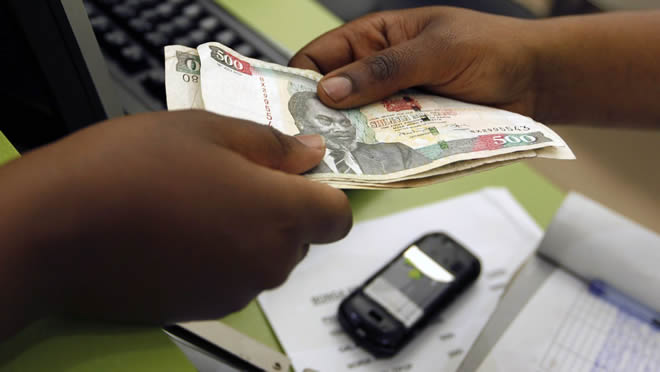
Wednesday, July 20, 2016
By Joshua Masinde

Safaricom, parent of the M-Pesa mobile money platform, is eying a piece of the $13.5 billion in annual transactions in Kenya’s payment cards industry with a new debit card. In its pilot stage, the new card, which is largely expected to challenge commercial banks for card commissions, is linked to its Lipa na M-Pesa (pay with M-Pesa) service, which enables traders and individuals to settle bills at different points of sale across the country.
Operating on the Near Field Communication (NFC) technology ecosystem, Safaricom’s M-Pesa debit cards and point-of-sale (POS) terminals will allow consumers to pay for goods and services much quicker on the ‘tap-and-go’ basis. It is best suited for “high-volume, low-value transactions that are typically paid for with cash (pdf)”. A transaction occurs when an NFC-enabled mobile handset is placed near a POS terminal, typically over distances of up to 10 centimeters.
The current payment set-up using M-Pesa is much slower as it requires users to follow through several stages before a transaction is completed. In a typical set-up like the cashier’s till at a supermarket, a buyer is required to input the till number, the amount money due, the M-Pesa PIN and then wait for the transaction to be completed.
The success of its flagship mobile money transaction service, M-Pesa, has inspired the mobile phone firm to seek further success in the electronic payments industry, whose popularity has however lagged behind mobile money’s in the past five years.
Many view Safaricom’s latest announcement as one that adds fuel to its fierce competition with banks, with each side devising ways of eating into the other’s market. Equity Bank, one of the largest banks in East Africa launched its mobile money service under the Equitel service in 2015, plunging into direct competition with Safaricom. In June this year, banks unveiled the Integrated Payments Service Limited (IPSL), a firm under their lobby group, the Kenya Bankers Association (KBA). The firm, an inter-operable mobile money transfer service for all lenders, is to enable direct transfer of funds between banks without having to go through M-Pesa.
Just like M-Pesa, the IPSL operates under the National Payment System (NPS) guidelines and is widely expected to cut transaction costs to consumers while keeping proceeds earned with the banks. Despite the emerging competition, many banks rely on Safaricom’s M-Pesa platform to enable their customers deposit, withdraw, borrow money, transfer funds or settle bills.
“As the M-Pesa ecosystem continues to expand, we continue to test the boundaries of the service to identify how we can continue to extend the gains of the platform to an increasing number of customers and businesses,” Safaricom’s chief executive officer Bob Collymore said.
In 2015, a total of 1.3 trillion Kenyan shillings ($13 billion) was transacted through electronic payments cards in Kenya with $12 billion transacted in a prior year.
Safaricom, East Africa’s largest phone network, launched Lipa Na M-Pesa in 2013 to facilitated purchase of goods and service through the mobile phone. By the end of March this year, payments worth $200 million had been made through the platform at over44,000 merchant outlets.
“Shifting consumer trends have seen services like debit cards and Lipa Na M-pesa thrive as consumers embrace more efficient, cashless means of paying for goods and services,” Collymore said.